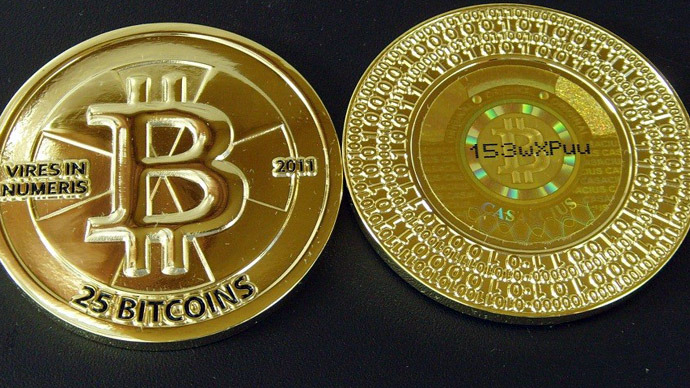The soaring virtual currency Bitcoin suffered a cyber-blow after its leading exchange, Tokyo–based Mt.Gox, was hit with a DDoS attack. The government-free tender also faced a hacker attack on its Instawallet database, forcing the site to be shut down.
“Mt.Gox has been suffering from its worst trading lag ever,
502 errors, and at one point some users were not able to log in
their account. The culprit is a major DDoS [distributed
denial-of-service attack] against Mt.Gox,” the firm declared in
a statement released Thursday.
The Mt.Gox Bitcoin exchange, which claims it is responsible for
“more than 80 per cent of all USD trades and more than 70 per
cent of all currencies,” says the culprit may never be
caught.
Apart from being an easy target due to its size, profit is most
likely the primary motive for the attack, the company added.
“Attackers wait until the price of Bitcoins reaches a certain
value, sell, destabilize the exchange, wait for everybody to
panic-sell their Bitcoins, wait for the price to drop to a certain
amount, then stop the attack and start buying as much as they can.
Repeat this two or three times like we saw over the past few days
and they profit.”
In a separate attack on Wednesday, Instawallet, a website which
enables Bitcoin traders to store and spend their currency, was also
forced to shut down after hackers gained access to its
database.
“The Instawallet service is suspended indefinitely until we
are able to develop an alternative
architecture,” announced the company.
Their statement continued that “it is impossible to reopen
the service as-is.”
Despite its widespread popularity, Instawallet was notoriously
insecure, as it used a “URL as password” mechanism for
protection.
The two-pronged cyber-attack failed to make a major dent in
gains the four-year-old virtual currency garnered over the last
month, having shot up from US$30 last month to a staggering $147
record set on Wednesday.
Following the attacks, the exchange rate for Bitcoin was
$134.
The currency, which was heavily bolstered by the financial
crisis in Cyprus, allows users to transfer money anonymously and
free of charge.
As a completely decentralized, digital-only currency, Bitcoins
are generated by a computer algorithm and can be exchanged with
anyone in the world.
Once a user sets up an account, Bitcoins are credited to an
electronic, encrypted wallet.
Via Bitcoin exchanges like Mt.Gox, it is both possible to buy
Bitcoins from other users or convert Bitcons into hard
currencies.
Critics have argued that the lack of central issuers and
anonymity of Bitcoins makes them the ideal tool for illicit
purchases and money laundering.
While the increased popularity of crypto currencies like
Bitcoins – whose total value stands at some $1.4 billion – last
month the US Treasury announced that firms which issue or exchange
virtual money would be regulated like traditional money-order
providers.


